|
|
|
|
When I lived in the small village of Damariscotta Mills, Maine, I would vote on Election Day in the tiny Nobleboro Town Office just up Route 1. I’d bring my young kids with me, the three of us would crowd our combined six arms and legs into a booth, and I would give them a mini-lecture about how the right to vote was something they should never take for granted – that sometimes people in other countries were killed for trying to vote.
Voting has always felt like an almost sacred act to me. After 40 years as a journalist covering politics – with ample time and ample reason to become cynical – I still get goose bumps when I go to my polling place. This is my part – tangible, quantifiable – in democracy.
Our election coverage leading up to today, Election Day, reflects that understanding of the role each of us has to play in our democracy. Our job as citizens is to vote knowledgeably, armed with relevant facts. We don’t need stories about the latest insults candidates are lobbing at each other, nor do we need endless horse-race coverage of polls, which tells you precisely nothing about a candidate and their positions and how they propose to fix what’s wrong and
support what’s right in the world.
In this newsletter, you’ll find our typical range of stories from the final week before the midterms. There’s an analysis of the value of TV ads in campaigns by Vanderbilt political scientist John Sides, who concludes that “TV ads didn’t change voters’ preferences for presidential candidates in presidential elections from 2000 to 2016.” In Senate races, though, “the effect of advertising on election outcomes is twice as large as in presidential races.” Maybe
that’s why a total of $254,668,614 has been spent on the U.S. Senate race in Georgia?
Senate races are among the highest-profile contests in this election, which is why we asked Drake University political scientist Rachel Paine Caufield to describe what a senator actually does. Caufield writes that “Senators take part in deliberations and voting within the Senate, with the goal of advancing the issues and positions that matter to their state.” But they have another role, too: “They also serve to advance the interests of the country.” That should
help readers who want to evaluate candidates’ fitness for the job.
And finally, if you haven’t voted yet, there’s a story you should read – because these days, you need to know facts not only about candidates, but also about your own right to vote, so you can defend it. Here’s our guide for what to do if someone tries to stop you from voting, in English and in Spanish.
|

|
Naomi Schalit
Senior Editor, Politics + Society
|
|
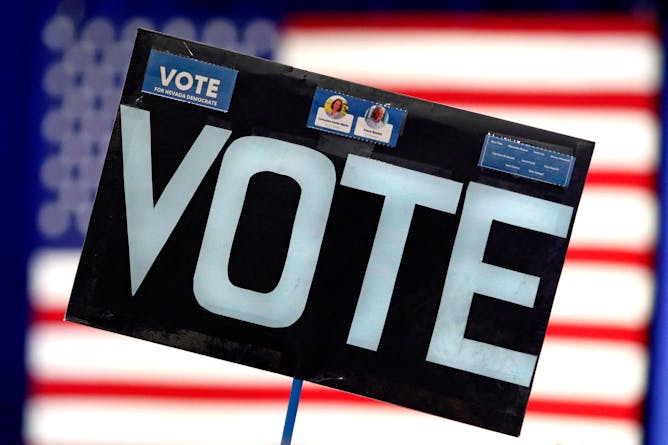
A vote sign appears at a campaign event for Nevada Gov. Steve Sisolak and U.S. Sen. Catherine Cortez Mastro in Las Vegas on Nov. 1, 2022.
Ronda Churchill/AFP via Getty Images
John M. Sides, Vanderbilt University
While TV political ads might seem old-fashioned in the age of social media, research shows that this kind of advertising does win votes – and could influence the upcoming midterms.
|
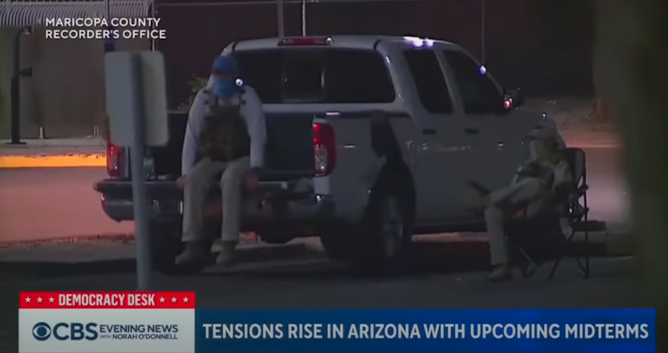
Arizona election officials released this image as one example of armed people watching ballot drop boxes.
Maricopa County Recorder's Office via CBS News
Garen Wintemute, University of California, Davis
What deep-dive polls reveal at the political landscape of America as the 2022 midterm election approaches.
|
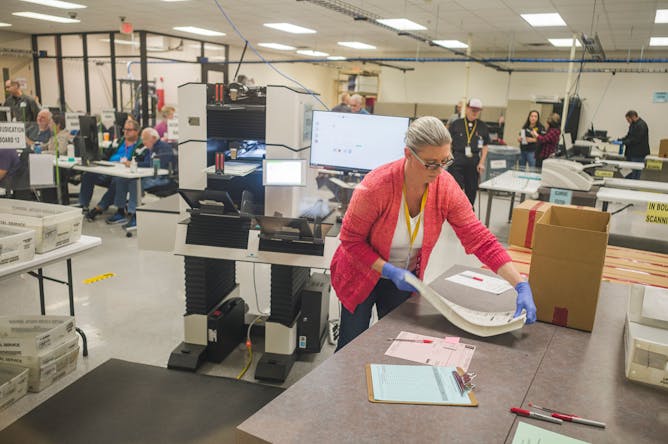
An election worker, watched by observers from both major political parties, handles 2022 midterm ballots in Phoenix, Ariz.
Olivier Touron/AFP via Getty Images
Amel Ahmed, UMass Amherst
Local election administrators work under increasingly difficult circumstances, with dwindling resources and mounting challenges.
|
|
|
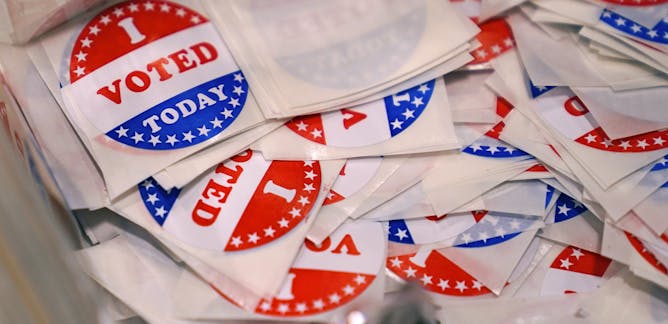
Karen Figueroa-Clewett, USC Dornsife College of Letters, Arts and Sciences
It’s Election Day, you go to vote – and you’re told you’re not registered or you’re not eligible to vote. A civil rights lawyer provides a guide so voters can know their rights to cast a ballot.
| |
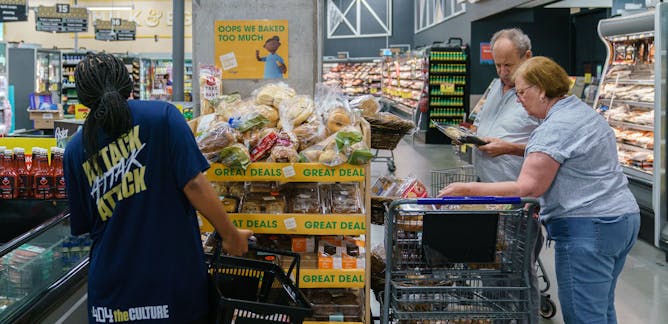
Stella Rouse, University of Maryland; Shibley Telhami, University of Maryland
Inflation, abortion and state of US democracy rank among the top issues facing voters before the midterm elections, regardless of race, ethnicity or party affiliation.
|
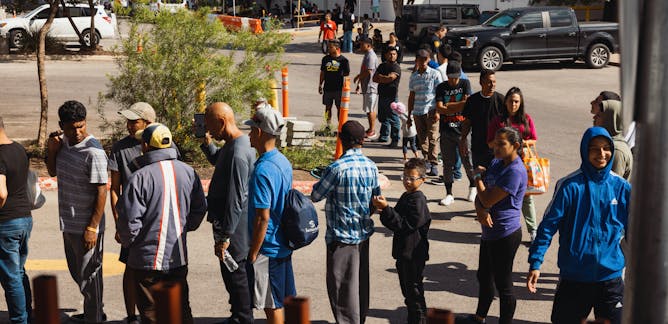
Ernesto Castañeda, American University
Some Republicans have claimed that a crisis exists on the US southern border. But federal immigration statistics tell a different story about the GOP’s overblown numbers.
| |
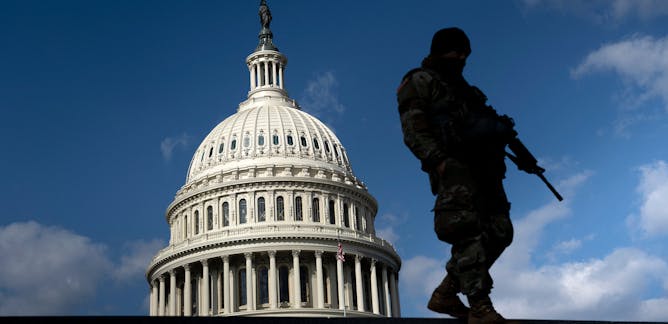
Richard Forno, University of Maryland, Baltimore County
The rise in contemporary right-wing political extremism – and violence – can be traced back to events in the 1990s.
|

Jeff Inglis, The Conversation
As elections approach – and even after they’re done – there’s a lot of confusing, and deliberately misleading, information out there. Learn how to protect yourself.
| |
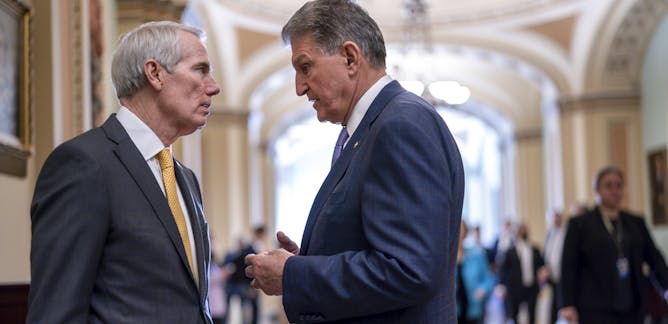
Rachel Paine Caufield, Drake University
Thirty-five Senate seats are up for grabs in the midterm elections. What tasks and responsibilities await the winners?
|
|
|
|
|
-
Amy Lieberman, The Conversation
Voter demographics and policy priorities are two recurrent, big issues on Election Day – but shifts in election administration and voting laws are new challenges influencing the midterms.
-
Seo-young Silvia Kim, American University School of Public Affairs
When registered voters who move get help reregistering to vote in their new locations, they are more likely to cast a ballot at the next election.
-
Mark R Reiff, University of California, Davis
Some fascists claim that democracy and fascism have the same goal – to give effect to the will of the people. But who the people are is where the ideologies divide.
|
|
|
|
|
|
| |
| |
| |
| |
|
|
|
|
|
|
|